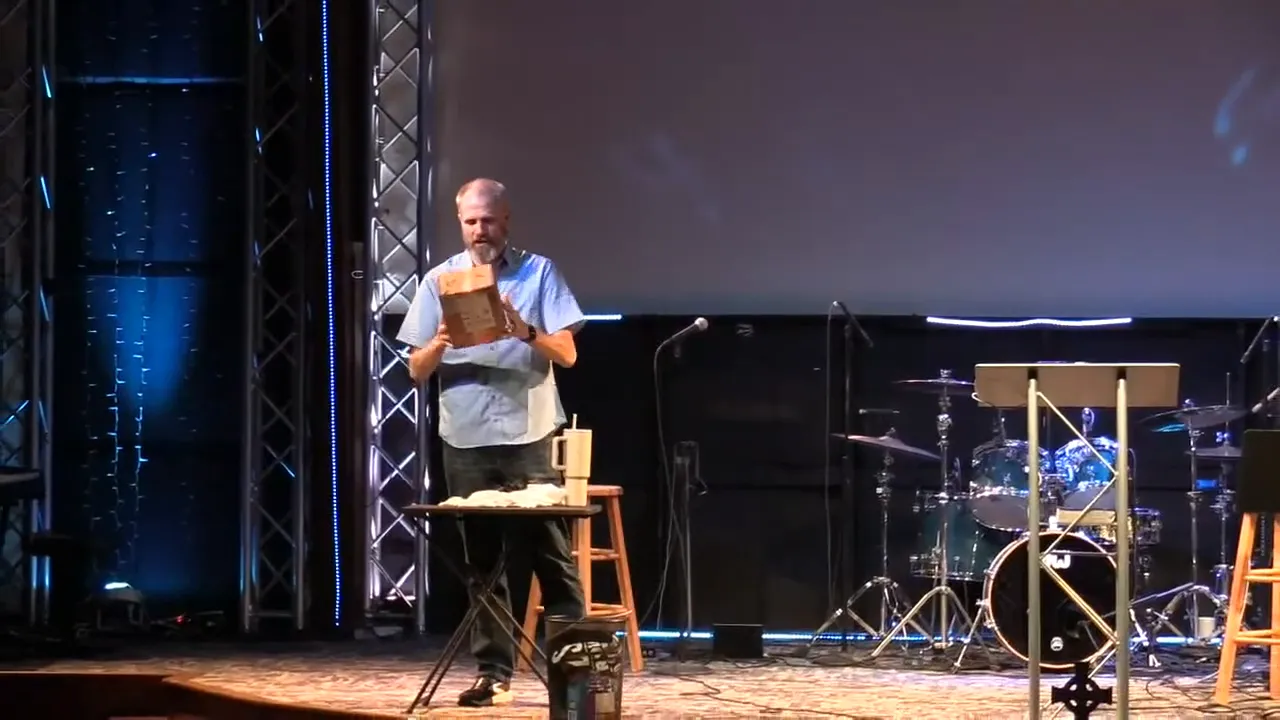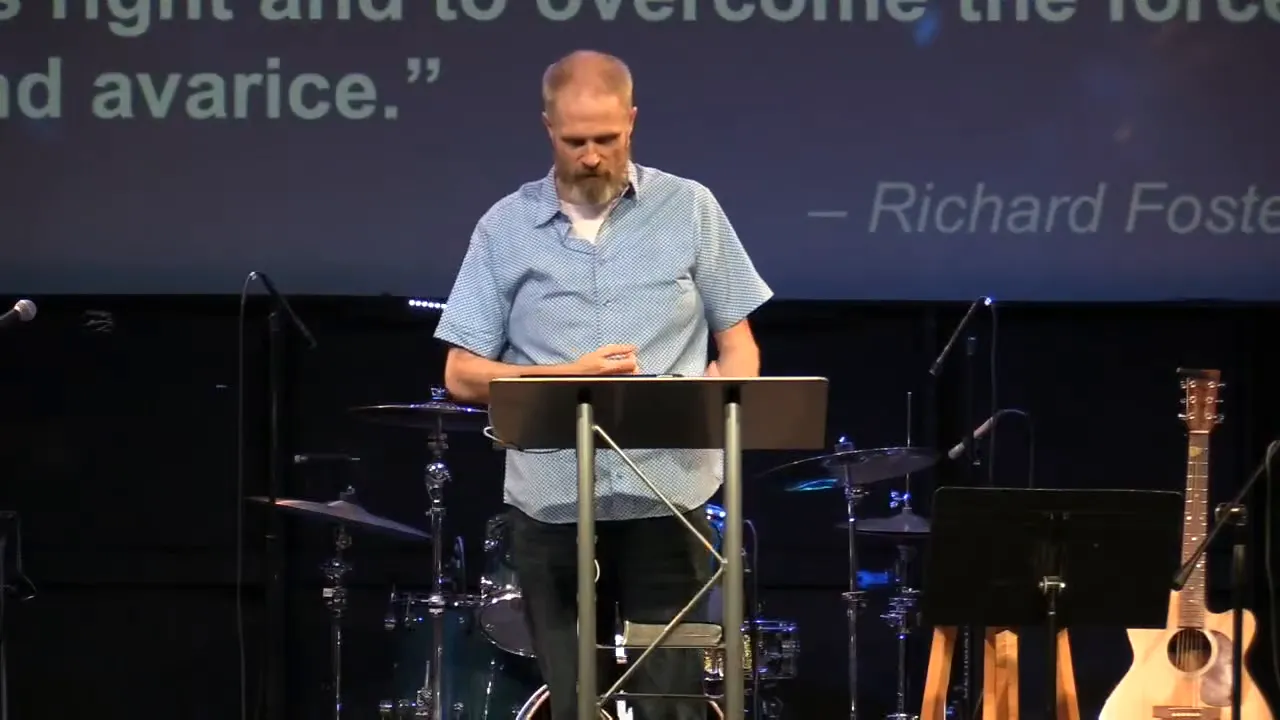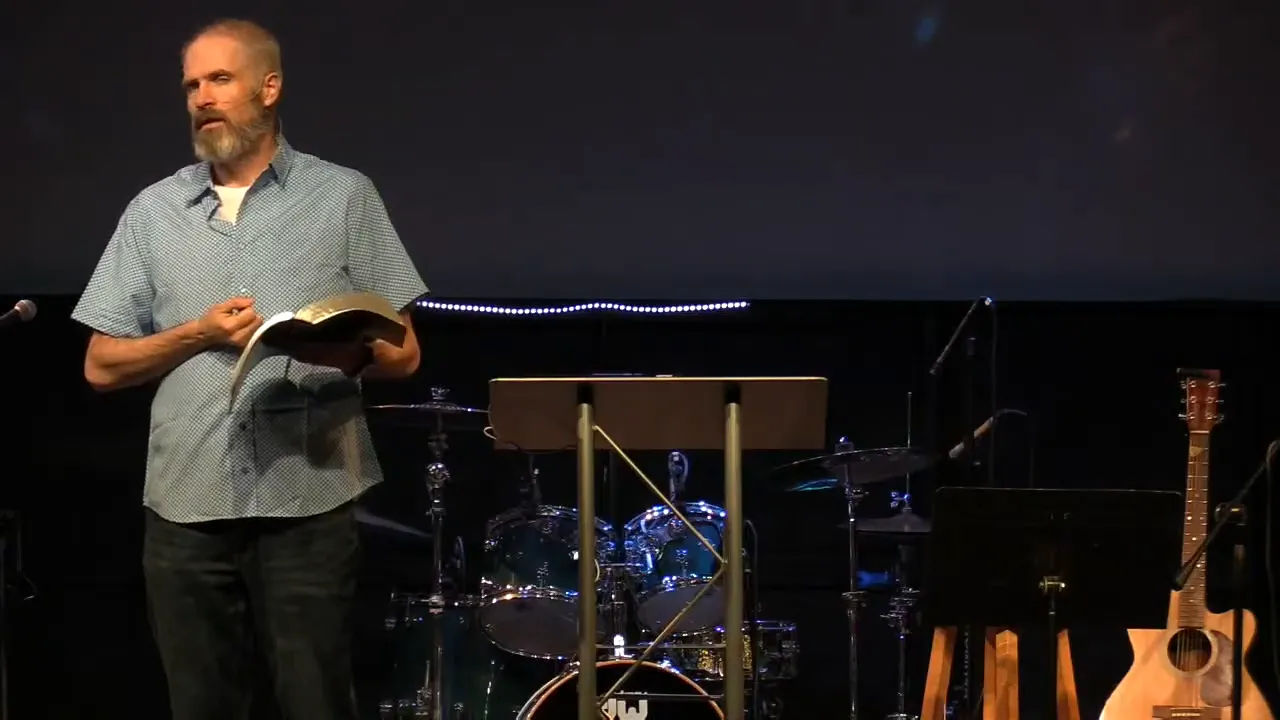Why Less Is More: Pursuing Simplicity in a Culture of Clutter
In our modern society, we find ourselves caught in a relentless cycle of excess. Our culture, steeped in the philosophy of "more is better," often leaves us feeling overwhelmed and unfulfilled. In this article, we will explore the importance of simplicity and how embracing it can lead to a more meaningful life. Drawing inspiration from various sources, including the teachings of Jesus, we will uncover the transformative power of letting go of excess and making room for what truly matters.
The Culture of Excess
As we navigate our daily lives, the message is clear: gather more. Whether it’s material possessions, social media followers, or packed schedules, we are constantly bombarded with the notion that we need more to be happy. This philosophy has not only flourished but has also grown exponentially. The television show Hoarders serves as a poignant reminder of this excess. It showcases individuals drowning in their belongings, illustrating a stark reality that resonates with many of us. We often feel buried under the weight of our possessions, unable to breathe amidst the clutter.
But it’s not just physical clutter; our calendars can often feel just as overwhelming. The pressure to fill every moment with activities and commitments can leave us gasping for air. This incessant need for more—more stuff, more success, more distractions—distracts us from what truly matters. It’s time to challenge this notion and consider a radical idea: what if less is actually more?
The Freedom of Less
Research suggests that simplifying our lives can lead to greater happiness. Studies have shown that experiences often bring more lasting joy than material possessions. Think about it—how many times have you eagerly awaited a package from Amazon, only to find that the excitement quickly fades once you have the item in your hands? You might even find yourself asking, "Did I really need that?"
This cycle of acquiring and discarding can feel endless. Instead of finding peace and happiness in new things, we often find ourselves burdened by them. The key to finding true joy may lie in strategically subtracting the distractions that keep us from focusing on what is essential.
Confronting Clutter
Many of us are "pilers"—we create stacks of items that become overwhelming. We forget what’s at the bottom of the pile, and when we can’t find something, we often blame others instead of acknowledging our own habits. For example, how many of us hang onto bags or boxes "just in case"? This behavior can lead to a cluttered space, both physically and mentally.

As we sift through our belongings, we may discover items that have long outlived their usefulness. Cleaning our spaces can serve as a metaphor for cleaning our minds. When we declutter, we make room not just for physical space but also for mental clarity. This is crucial for hearing from God and connecting with our inner selves.
Jesus’ Invitation to Simplicity
Jesus offers us an invitation to embrace simplicity. He doesn’t impose a rigid law upon us but invites us to let go of the excess that distracts us from keeping the main thing the main thing. Richard Foster eloquently describes this as breaking free from the bondage of greed and living in joyous trust. He emphasizes that everything we have is a gift, framing the heart of Christian simplicity.

However, many of us remain trapped in a cycle of consumerism, emulating the behavior of those around us instead of seeking a more meaningful path. We often look to others for validation, believing that the next purchase or achievement will finally fulfill us. Yet, this cycle is unending, leading to feelings of emptiness and anxiety. The clutter in our lives can cloud our souls, making it difficult to see the true essence of life.
Guarding Against Greed
In Luke chapter twelve, Jesus warns us to guard against greed, stating that life is not measured by how much we own. This message resonates even today, as we find ourselves in a culture that glorifies wealth and material success. Jesus tells the parable of the rich fool, a man who hoarded his wealth only to find that his life would be taken from him that very night. This story serves as a powerful reminder that hoarding wealth without a rich relationship with God is folly.

Jesus teaches us that true wealth lies not in possessions but in relationships and experiences. Wealth consists not in having great possessions, but in having fewer wants. This aligns with Stoic philosophy, which emphasizes virtue over material gain. The endless chase for more can feel like a hamster wheel—no matter how much we acquire, we always feel like we need just a bit more to be happy.
The Challenge of Simplicity
Embracing simplicity can be a daunting task. It requires us to confront our habits and make difficult choices about what to keep and what to let go. Steve Jobs famously stated, "Focus and simplicity are often harder than complex." This notion rings true in our lives as well. It’s easier to accumulate than to simplify. The editing process, whether in writing or in life, can be challenging but ultimately rewarding.
As we begin to embrace simplicity, we may find ourselves faced with the challenge of cutting out the crutches we believe we need. These crutches may provide temporary satisfaction but do not lead to long-term happiness. Instead, we can focus on what truly matters—our relationships, our faith, and the experiences that enrich our lives.
Implementing Simplicity in Daily Life
To start embracing simplicity, consider identifying one area in your life where you can simplify. This could be a spending habit, a calendar item, or even a physical space. For instance, a spending fast—where you only pay for essentials—can be a revealing experience. Many have found that stepping back from unnecessary expenses can lead to greater appreciation for what they already have.
Additionally, decluttering your physical space can free up mental energy. When you clear out items that no longer serve you, you create a sense of lightness and clarity. This newfound space can be filled with activities that foster growth, such as spending time with loved ones, engaging in meaningful conversations, or deepening your relationship with God.
Choosing What Matters Most
Ultimately, simplicity is about making space for what matters most. It is not merely about owning less; it’s about prioritizing our lives in a way that aligns with our values. Jesus invites us to treasure what truly matters. In Matthew 6:19, He reminds us not to store treasures on Earth but to store treasures in Heaven, where our hearts will also be.
As we navigate this journey towards simplicity, it’s essential to examine what we treasure. It’s easy to get caught up in material possessions, but true treasure lies in our relationships and experiences. Simplicity allows us to focus on what brings joy and fulfillment, rather than what merely fills space.
Conclusion: A Community of Simplicity
As we strive to embrace simplicity, let us become a community that champions this lifestyle. In a world that screams for excess, we can serve as a counterargument to that narrative. By prioritizing relationships over possessions, we can fill our homes with peace and joy rather than clutter. Let’s redefine our schedules to be meaningful and strategic, focusing on what adds value to our lives.
In closing, let us say no to excess and yes to trusting Jesus. By creating space for Him in our lives, we can cultivate a deeper faith and find true happiness. The rich young ruler missed out on a beautiful relationship with Jesus because he couldn’t let go of his possessions. Let us not fall into that trap. Instead, let’s support one another in choosing simplicity and trusting in the path God has laid out for us.
